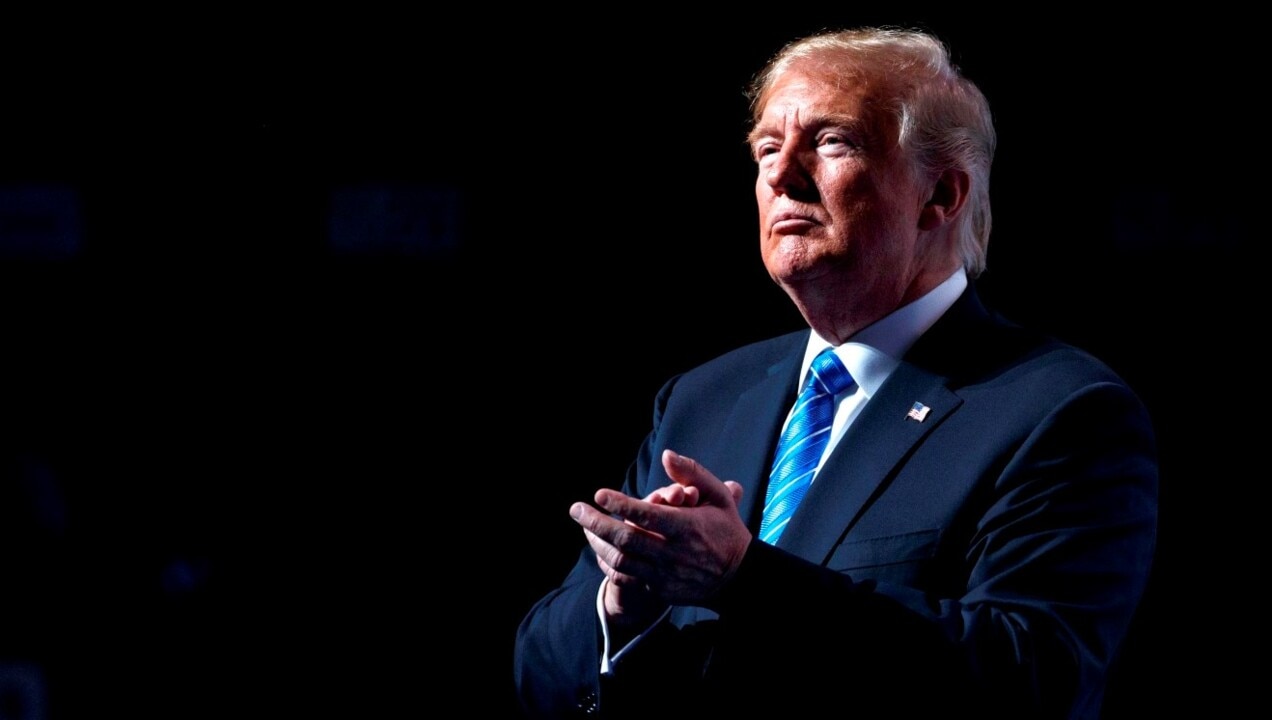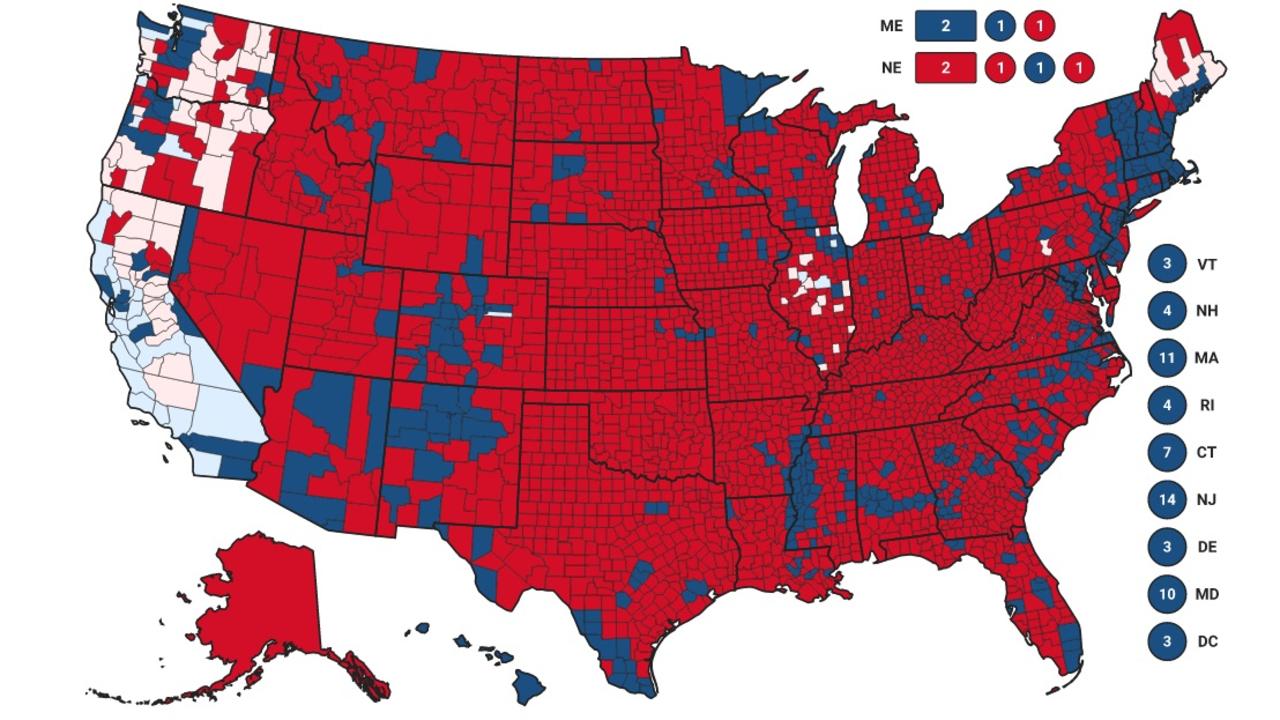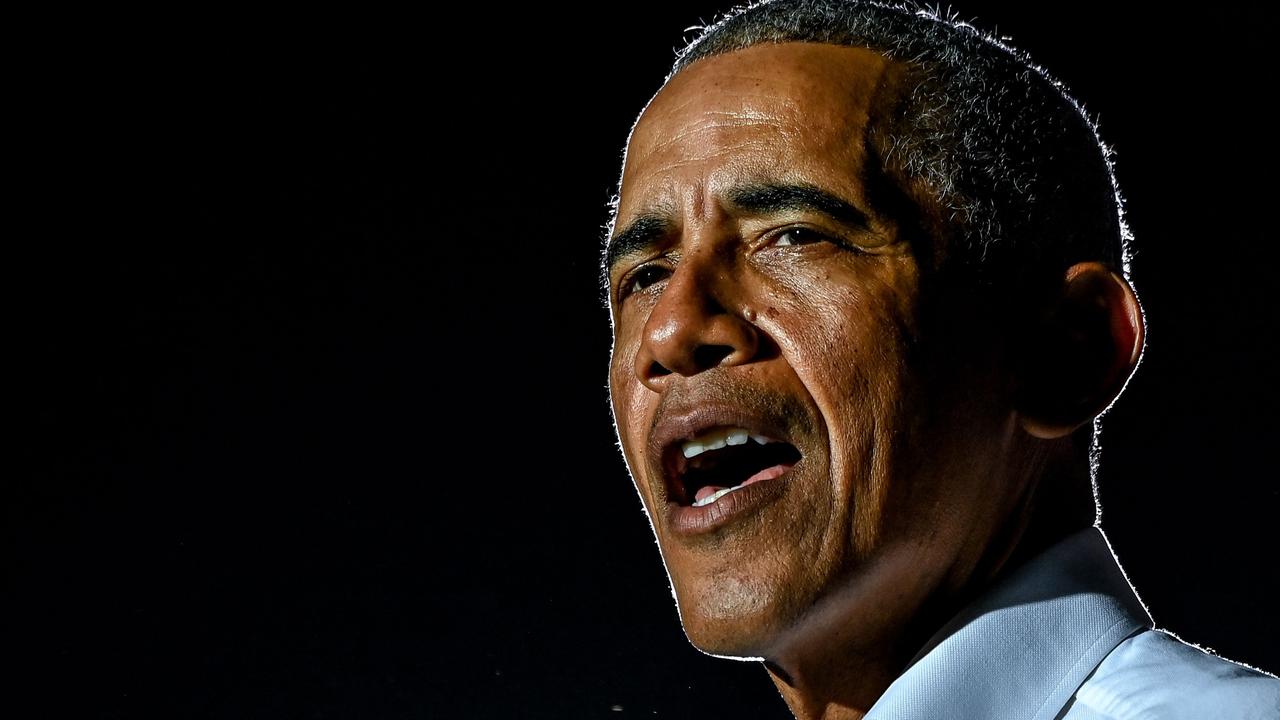Biden smashes Obama’s record for lowest number of counties won by successful presidential candidate
Joe Biden is on track to smash another of Barack Obama’s records – but experts fear it only spells more violence and division for the US.

Joe Biden is on track to smash another of Barack Obama’s records.
If Mr Biden takes office, he will have set a new low for the percentage of counties won by a successful US presidential candidate – just 15 per cent.
The former Democratic Vice President appears to have secured an electoral college victory with just 477 out of the country’s 3143 counties and county-equivalents.
Hillary Clinton, in her failed 2016 run, won 472 counties.
Former President Obama ushered in the previous low in 2012, winning re-election with just 689 counties, or 22 per cent – breaking his own record set in 2008, where he won with 875 counties, or 28 per cent.
“Obama ran a better campaign in the states where the campaigns really mattered and put in (the) effort,” Cook Political Report’s David Wasserman said in 2012.
“Democrats are really clustered at the presidential level. The map is redder today than it was in 1988 … but if you look at that divide, we may be moving to a new normal where Democrats and particularly non-white voters are sufficient in swing states to allow Democrats to win.”
By contrast, Donald Trump carried 2497 counties this election, just under 80 per cent of the total. This was 87 fewer than the 2584 he won in 2016 – the most for a Republican since Ronald Reagan.
The figures highlight how Mr Biden managed to overcome the President’s strength in rural areas by running up massive numbers of votes in densely populated, heavily Democratic urban centres like Philadelphia.

The Trump campaign is continuing to fight to overturn the election results, alleging voter fraud in a handful of big cities in Pennsylvania, Michigan, Wisconsin, Georgia, Arizona and Nevada was enough to flip those states.
Mr Biden has now received a nearly 80 million votes in total – another record – versus nearly 74 million for Mr Trump, and is on track for a commanding 306-232 electoral college victory.
The historic 15 per cent milestone has attracted relatively few headlines.
The Brookings Institute, instead, stressed that the 477 counties Mr Biden won account for 70 per cent of America’s economic activity, while Mr Trump’s “losing base of 2497 counties represents just 29 per cent of the economy”.
The authors noted that at the time of writing on November 10, votes were still outstanding in 110 “mostly low-output counties”, with the analysis based on unofficial results from 96 per cent of counties.
“The data confirms that the election sharpened the striking geographic divide between red and blue America, instead of dispelling it,” the think tank wrote.
“In short, 2020’s map continues to reflect a striking split between the large, dense, metropolitan counties that voted Democratic and the mostly exurban, small-town, or rural counties that voted Republican.”

They argued that in many ways, blue and red America were two different economies.
“One oriented to diverse, often college-educated workers in professional and digital services occupations, and the other whiter, less-educated, and more dependent on ‘traditional’ industries,” they said.
“Why does this matter? This economic rift that persists in dividing the nation is a problem because it underscores the near-certainty of both continued clashes between the political parties and continued alienation and misunderstandings.”
The study’s lead author, Mark Muro, told Fortune there was now an “extreme political gridlock that aligns with this very deep economic divide”.
“That’s what’s so worrisome,” he said.
“It used to be that the manufacturing economy, for instance, was both urban and rural. It’s now mostly rural, and you’re hard-pressed to find a manufacturing city. By the same token, it’s pretty hard to find early-stage software development in rural America. The alignments here have made the problem more difficult.”
Mr Muro warned that the country faced an existential crisis unless it could bridge the gap between Democrats and Republicans.
“On the one hand, we can see a fading of US pre-eminence because this is no way to manage and advance a globally competitive national economy,” he said. “So that’s the most encouraging thing anyone could say. The worst you could say is that you do actually have backlash, some kind of actual violent rejection or divide – some kind of secession.”
On Monday, Mr Trump agreed to formally begin the transition process after a weeks-long standoff, despite vowing to continue fighting to overturn the election results and declaring “we will prevail”.




